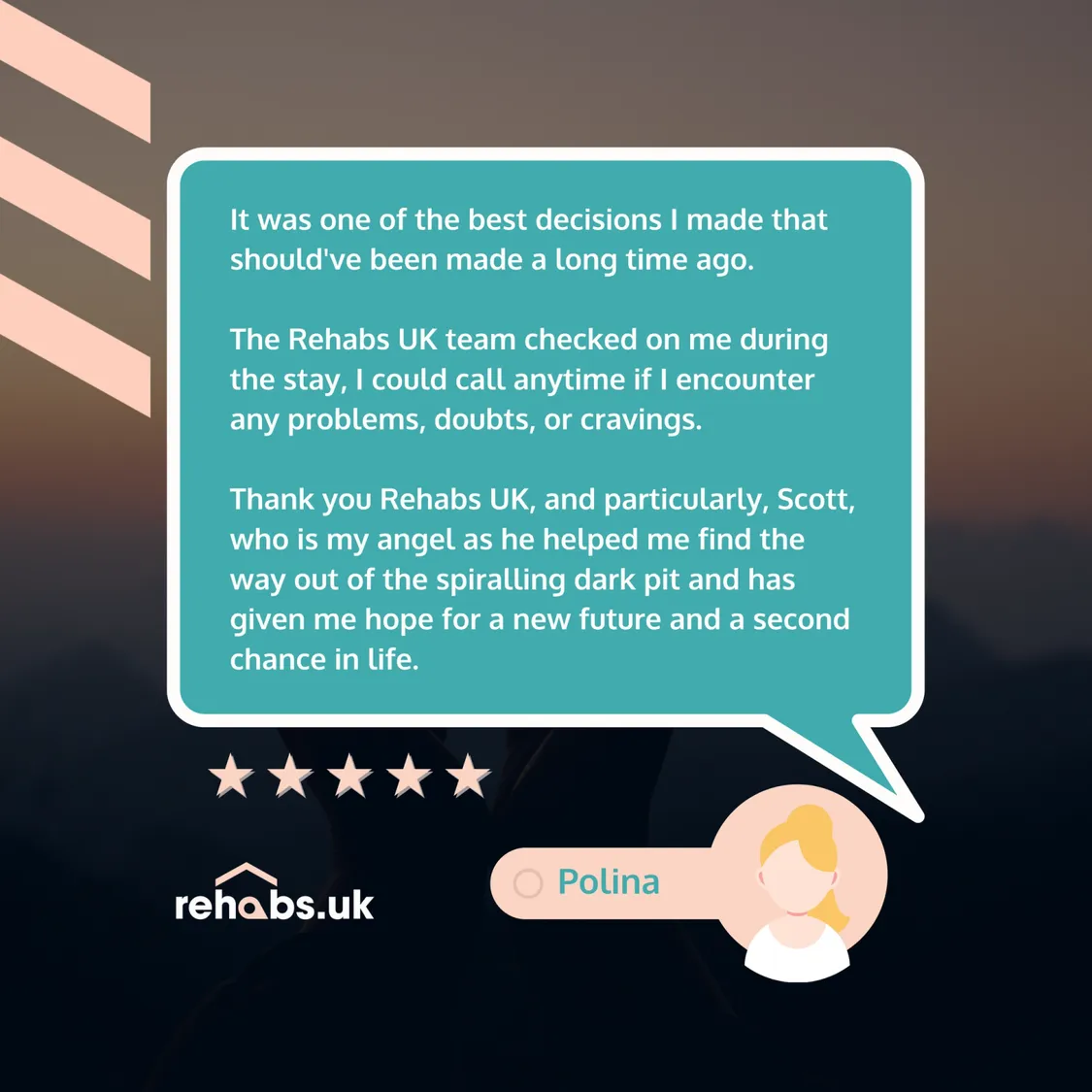03 Mar 2023
Do I need to detox from alcohol?
The decision to detox from alcohol depends on a number of factors, including the severity of your alcohol use, the length of time you have been using alcohol, and any underlying health conditions you may have. If you have been drinking heavily for an extended period of time, it is possible that your body has become physically dependent on alcohol. In this case, stopping alcohol use suddenly can be dangerous and can cause withdrawal symptoms such as tremors, seizures, and even delirium.
If you are concerned about your alcohol use and think you may need to detox, it is important to speak with a medical professional or a Rehabs UK Treatment Advisor. They can help you assess your situation and determine the best course of action for you. If necessary, they can also provide support and guidance during the detox process, which can be challenging and difficult.
There are many reasons why someone may need to detox from alcohol, including:
- Physical dependence: Regular, heavy alcohol use can cause physical dependence, where the body becomes accustomed to having alcohol in the system and withdrawal symptoms occur when alcohol is not consumed.
- Mental health issues: Alcoholism can exacerbate existing mental health problems, such as anxiety and depression, and create new ones. Detoxing from alcohol can help to address these issues and improve overall mental health.
- Medical problems: Alcohol abuse can cause a variety of medical problems, such as liver damage, brain damage, heart disease, and decreased immune function. Detoxing from alcohol can help to reverse some of these negative effects.
- Personal choice: Some people may choose to detox from alcohol because they have realised the negative impact that alcohol has had on their life, including strained relationships, financial problems, and decreased work performance. Some people choose to opt for non-alcoholic options.
- Pregnancy: Women who are pregnant or planning to become pregnant may need to detox from alcohol to protect their health and the health of their unborn child.
- Court order: In some cases, a court may order someone to detox from alcohol as a condition of probation or parole.
Regardless of the reason for detoxing from alcohol, it's important to understand that detox is only the first step in overcoming an addiction to alcohol. Once the physical withdrawal symptoms have subsided, it's crucial to continue to work on your recovery, which may include therapy, group therapy or support groups, and other forms of treatment such as anti-craving medication, in order to achieve sustained sobriety and a healthier, happier life. Evidence shows that counselling for addiction significantly increases the likelihood of maintaining long-term recovery from addiction.
How does home detox from alcohol work?
If you are considering an alcohol home detox, it's important to speak with a medical professional first or one of our Treatment Advisors. They can help assess your situation and determine if it's safe for you to attempt a home detox, or if you would be better off in a supervised medical detox setting
If your healthcare provider determines that a home detox is appropriate for you, they may suggest a gradual reduction in alcohol consumption over time, with the goal of eventually stopping completely. They may also provide you with medications to manage withdrawal symptoms, as well as guidance on lifestyle changes and coping strategies to support your recovery.
Regardless of the approach you take, it's important to have a support system in place, such as friends and family who can offer encouragement and help during the detox process. Additionally, it's recommended that you follow up with a healthcare provider regularly to monitor your progress and ensure that you are on the path to a successful recovery.

How to safely detox from alcohol at home
If you have decided to detox from alcohol at home, it's important to take the following steps to ensure a safe and successful process:
- Consult with a healthcare provider: Before you begin detoxing, it's important to consult with a healthcare connector such as Rehabs UK to assess your individual needs and determine if home detox is appropriate for you. Your provider can also provide guidance on managing withdrawal symptoms and support your recovery.
- Gradually decrease your alcohol intake: If possible, try to gradually decrease your alcohol intake over several days or weeks before you stop drinking completely. This can help to reduce the severity of withdrawal symptoms.
- Have a support system in place: Having a strong support system can be essential to a successful home detox. Surround yourself with friends, family, or support groups who can offer emotional support, help you stay motivated, and ensure your safety.
- Stay hydrated: Dehydration can be a major issue during detox, so it's important to drink plenty of water and other hydrating fluids, such as sports drinks or electrolyte-rich juices.
- Get plenty of rest: Getting plenty of rest is essential for helping your body recover from the effects of alcohol. Try to get at least 7-8 hours of sleep each night, and avoid activities that can interfere with your sleep, such as caffeine or electronics.
- Eat a nutritious diet: Eating a balanced diet that is high in nutrients and low in processed foods can help to support your recovery and reduce withdrawal symptoms. Consider eating small, frequent meals throughout the day, rather than large, heavy meals.
- Exercise regularly: Exercise can help to reduce stress, improve mood, and support your overall health during detox. Try to get at least 30 minutes of physical activity each day, such as walking, biking, or yoga.
- Seek medical attention if necessary: If you experience severe or persistent withdrawal symptoms, such as seizures, hallucinations, or rapid heart rate, it's important to seek medical attention immediately. In some cases, hospitalisation may be necessary to manage these symptoms.
Remember, alcohol detox can be a difficult and challenging process, and it's important to have a plan in place and seek support from a healthcare provider and loved ones to ensure a safe and successful recovery.

How long does alcohol home detox take?
The length of time that an alcohol home detox will take depends on a number of factors, including the severity of your alcohol use, the length of time you have been using alcohol, and any underlying health conditions you may have. Those in employment may wish to inform their employer about their dependency on alcohol to ensure they can focus on their recovery without added pressure.
Typically, alcohol withdrawal symptoms begin to appear within 6-12 hours after your last drink and can last for several days. The most severe symptoms usually peak within 24-48 hours and then gradually subside.
The timeline and severity of alcohol withdrawal symptoms can vary from person to person, but here is a general overview of what to expect:
24-48 hours after the last drink: During this time period, mild withdrawal symptoms may start to occur, including tremors, anxiety, irritability, and insomnia. In some cases, individuals may experience mild to moderate alcohol cravings.
48-72 hours after the last drink: The withdrawal symptoms may become more intense, including increased tremors, sweating, nausea, vomiting, and rapid heart rate. In some cases, individuals may experience severe alcohol cravings and an increased risk of seizures.
1-2 weeks after the last drink: Most of the physical symptoms of alcohol withdrawal should have subsided by this point, although some individuals may continue to experience mood swings, anxiety, depression, and insomnia. It's also common to experience alcohol cravings during this time.
3-4 weeks after the last drink: The majority of withdrawal symptoms should have disappeared by this point, although some individuals may continue to experience lingering symptoms, such as sleep disturbances and low energy levels.
It's important to note that these are general guidelines and that the timeline and severity of withdrawal symptoms can vary depending on the individual. If you are experiencing severe or persistent symptoms, it's important to seek medical attention. Additionally, even after the physical symptoms of withdrawal have subsided, it's important to continue working on your recovery, as alcohol addiction is a chronic condition that requires ongoing treatment and support.
What are the risks of detoxing at home?
Detoxing from alcohol at home can be risky, as it can lead to serious health complications and potentially life-threatening withdrawal symptoms. Some of the risks associated with home detox include:
Seizures: Alcohol withdrawal seizures can occur suddenly and without warning, and they can be extremely dangerous, especially if they occur while you are alone.
Delirium Tremens (DTs): DTs is a severe form of alcohol withdrawal that can cause confusion, agitation, hallucinations, and other symptoms. DTs can be life-threatening and requires immediate medical attention.
Dehydration: Alcohol acts as a diuretic, which can lead to dehydration and electrolyte imbalances. This can be especially dangerous in older adults, who are more susceptible to dehydration.
Heart complications: Alcohol withdrawal can cause changes in heart rate and blood pressure, which can increase the risk of heart attack or stroke.
Mental health complications: Alcohol withdrawal can exacerbate underlying mental health conditions, such as anxiety or depression, and trigger symptoms such as agitation, paranoia, and even psychosis.
Relapse: Without proper support and guidance, attempting a home detox can increase the risk of relapse and make it more difficult to achieve sustained recovery. However having a relapse prevention plan can reduce this risk.
It's important to speak with a medical professional or one of our Treatment Advisors before attempting a home detox to determine if it's safe and appropriate for you, and to have a plan in place for managing withdrawal symptoms and supporting your recovery. In some cases, it may be necessary to detox in a supervised medical setting, where you can receive the proper care and support you need to safely and effectively overcome your alcohol addiction.
Who should not detox from alcohol at home?
There are certain individuals who should not attempt to detox from alcohol at home, as it can be dangerous and potentially life-threatening. These include individuals who:
- Have a severe alcohol use disorder (AUD) and have been drinking heavily for a long time.
- Have a history of alcohol withdrawal seizures or delirium tremens (DTs).
- Have underlying medical conditions, such as liver disease, heart disease, or pancreatitis, that could be worsened by alcohol withdrawal.
- Have a history of mental health conditions, such as depression or anxiety, that could be exacerbated by alcohol withdrawal.
- Are taking medications that could interact with alcohol or be affected by alcohol withdrawal.
- Have previously attempted home detox and experienced complications or failed to achieve sustained recovery.
If you fall into one of these categories, it's important to seek professional medical help and to detox in a supervised medical setting. This will ensure that you receive the proper care and support you need to safely and effectively overcome your alcohol addiction.
Get support for home alcohol detox
Rehabs UK offer a variety of services including home detox for anyone who is looking for support and guidance during the detox process. By reaching out, you can access a wide range of services and resources that can help you successfully detox from alcohol and begin your journey to recovery.
